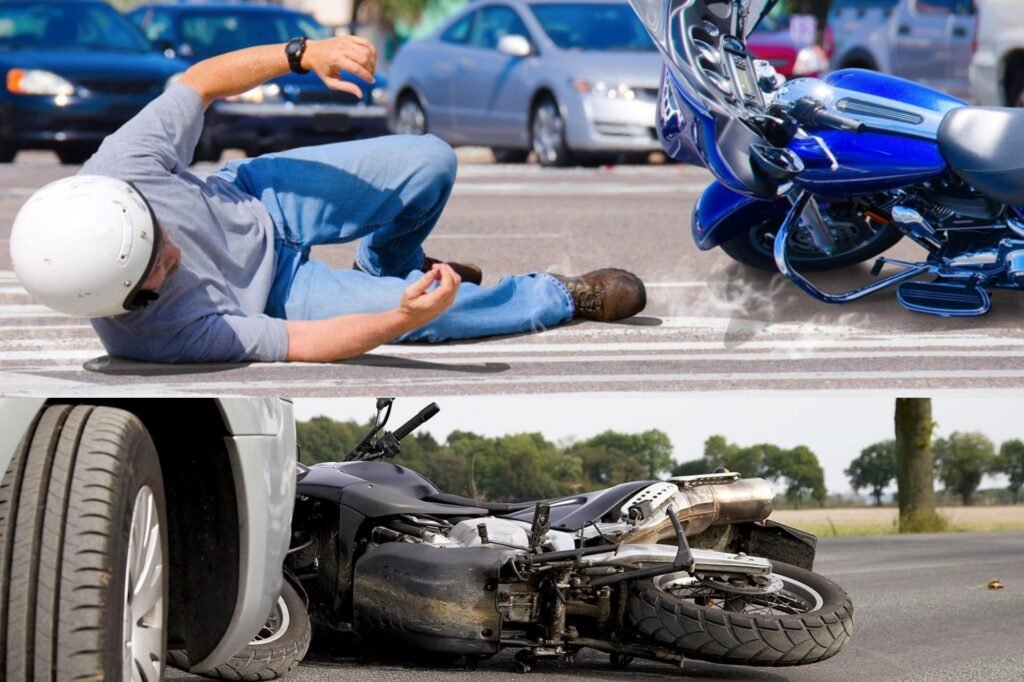A motorcycle accident is life-changing. The scars can run way deeper than the eyes can see.
Survivors of motorcycle accidents in Augusta report emotional disturbances that are sometimes as severe as the physical injuries.
It is important to seek the assistance of Augusta motorcycle accident lawyers, as these emotional issues might interfere with the victim’s everyday life.
What are the Emotional Disturbances Augusta Motorcyclist Suffers After an Accident?
The emotional aftermath of motorcycle accidents can be profound, affecting mental health and daily life. Let’s look at the common emotional disturbances Augusta motorcyclists have to live through after an accident.
Trauma and PTSD
After a motorcycle accident, many riders develop post-traumatic stress disorder. Mostly, this manifests itself through flashbacks, nightmares, excessive anxiety, intrusive thoughts regarding the accident, or other such symptoms.
Trauma may interfere with daily life, making an individual too afraid to go back to normal activities and try to feel safe once more.
For example, if a motorcyclist has had a very bad crash, they may never get on again due to fear; hence, he will avoid driving at all. Their fears can be extremely limiting in terms of their freedom and quality of life.
Depression
Another common emotional disturbance after a motorcycle accident is depression. Severe bodily pain, changes in life, and emotional stress all mix together to create constant sadness, loss of interest in activities that they once liked, changes in appetite, and sleeping problems. A person recovering from a motorcycle accident may withdraw from social gatherings or hobbies they previously enjoyed, thereby altering their entire well-being and social life. It is a withdrawal that deepens the feelings of isolation, increasing the risks of possible emotional hurt.
Guilt and Self-Blame
Guilt and self-blame are common emotional responses from motorcyclists who have had an accident. This emotion tends to be at its peak when the motorcyclist believes he/she was partly or fully responsible for the accident. Their guilt may even be heightened by some perceived mistakes made during the accident.
For example, a motorcycle rider who survived a collision may feel very guilty, thinking that they could have done something differently to prevent the accident. It may be paralyzing in its effects and impede recovery by resulting in self-blame.
Anger and Frustration
Anger and frustration are common emotional responses to a motorcycle accident. Many people will get angry at other drivers, at themselves, and at the whole set of circumstances. This can result from constant pain, the tedious and complicated process of the law, or the financial burden of recovery.
For instance, a motorcyclist may get angry about the slow progress they are making in physical recovery and about the unfair insurance settlements, which reflect negatively on their mood and, in turn, their relationship with others.

Isolation and Loneliness
The emotional and physical toll from the accident may cause a very severe form of social isolation. Motorcyclists tend to withdraw from friends and family due to the pain, embarrassment, or even an unwillingness to discuss the motorcycle accident.
For example, one might stop making new friends, attend social gatherings, or begin to decline invitations, thereby potentially feeling lonely and losing their network. Such isolation will only add to their overall emotional burden.
Adjustment Difficulties
The most challenging adjustment in the aftermath of a motorcycle accident is to new limitations or changes in one’s lifestyle. It may be adapting to physical harm, changes in mobility, or even changes in daily routine.
For instance, a biker who suffers a long-term injury may struggle to adapt to new physical limitations using mobility devices or making changes in their day-to-day activities. Adjustments such as this are hard and may require extensive emotional and practical adjustments to get used to.


